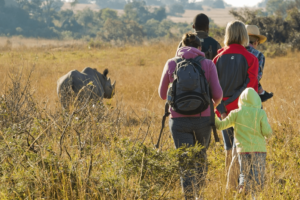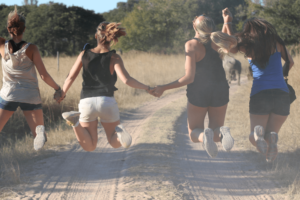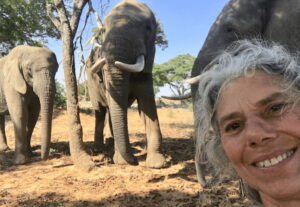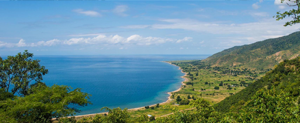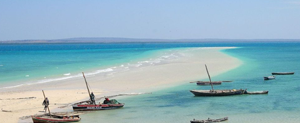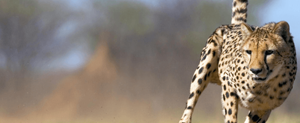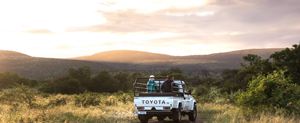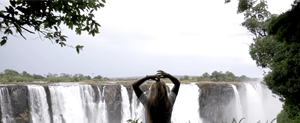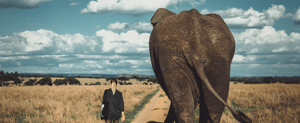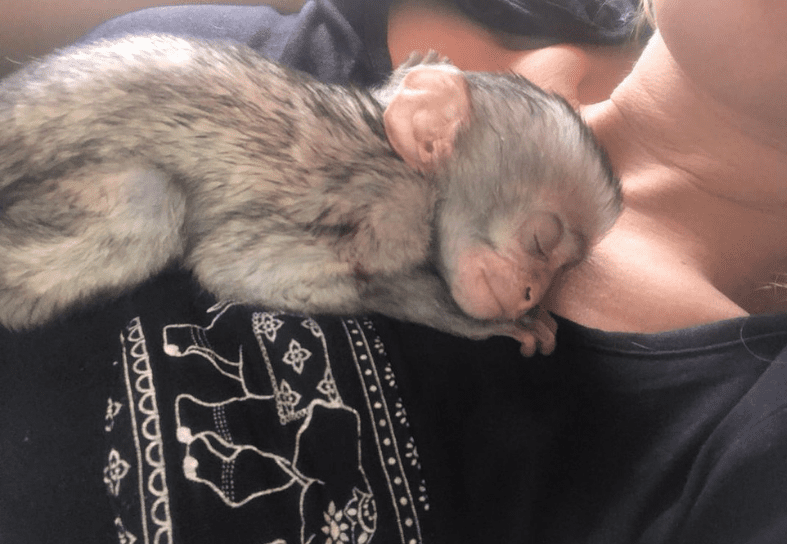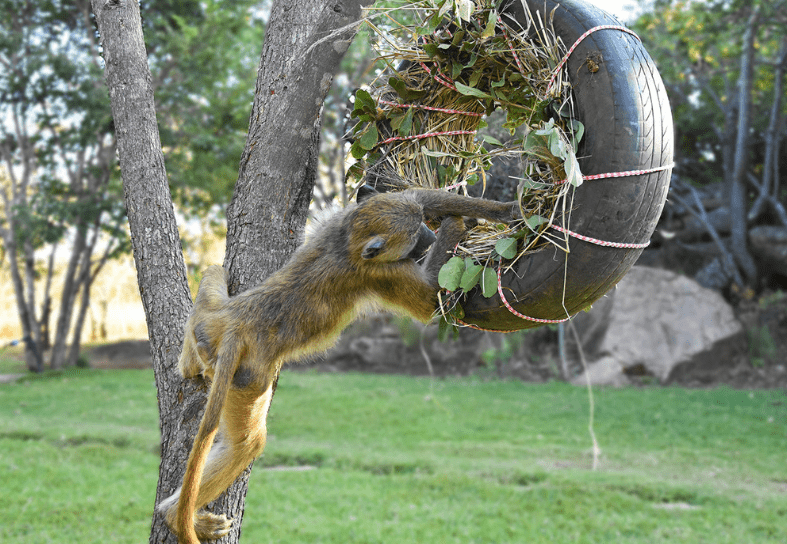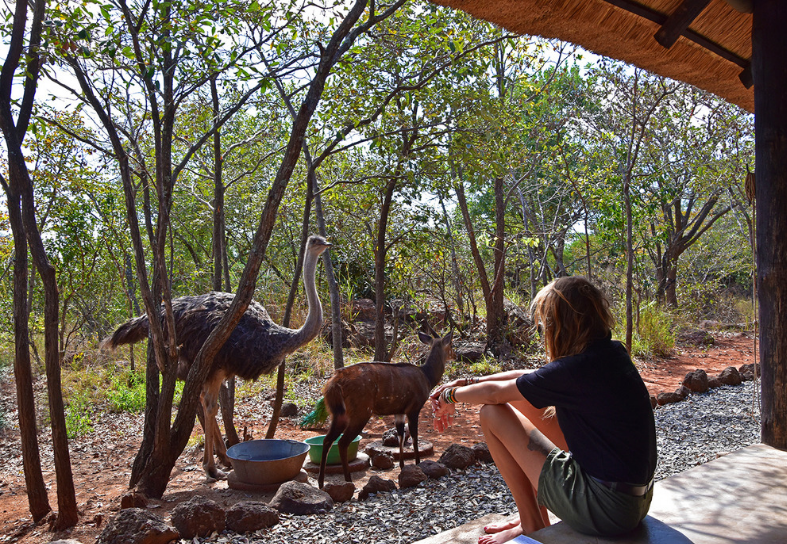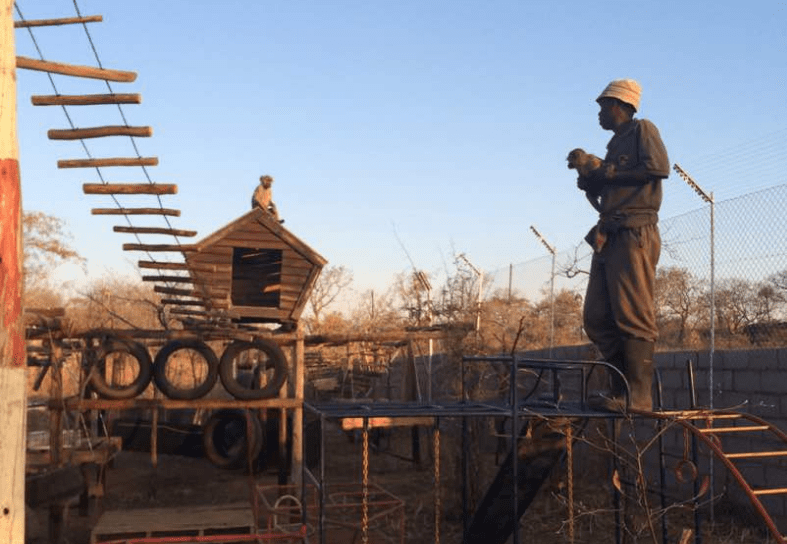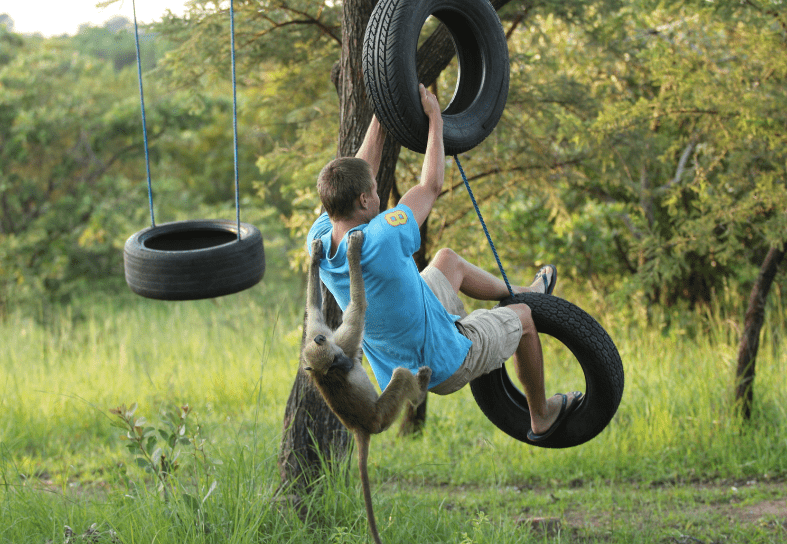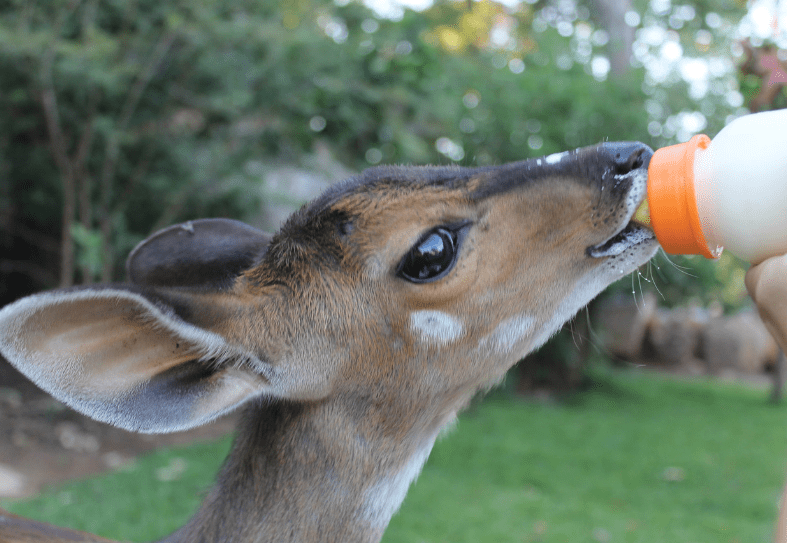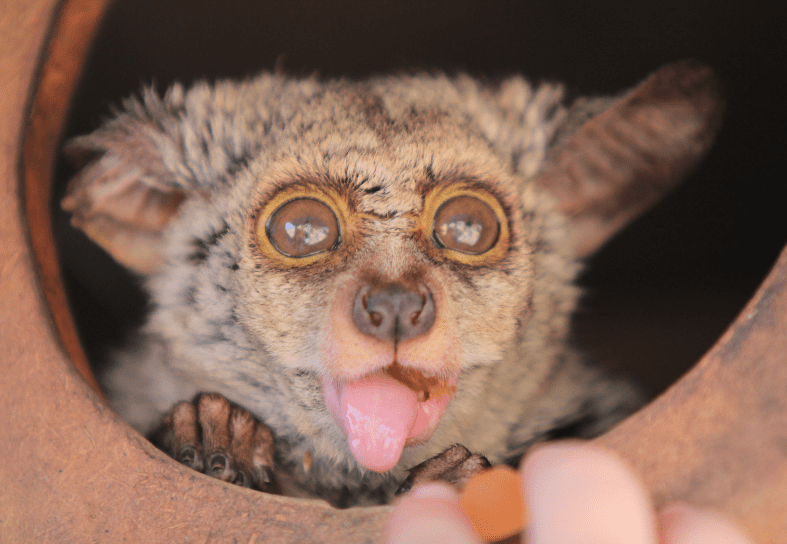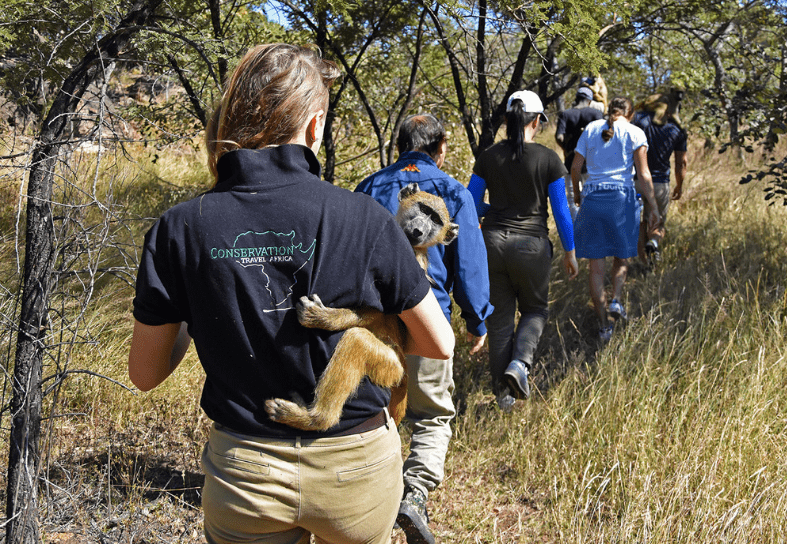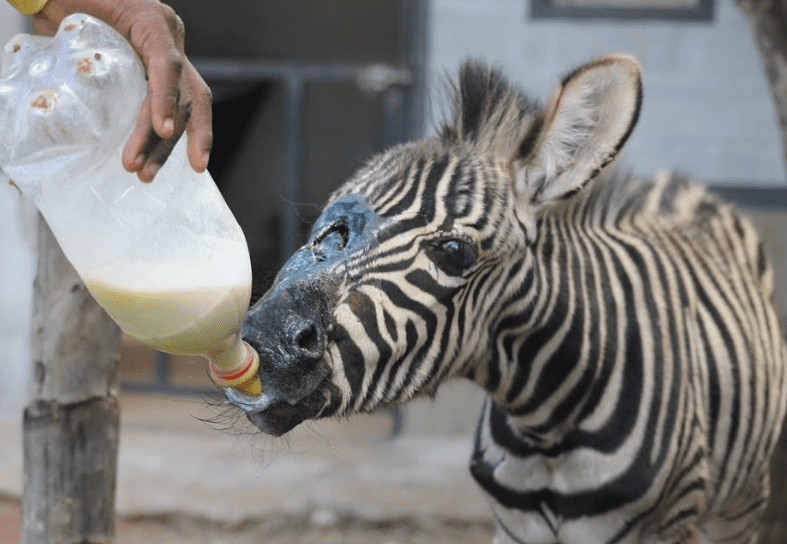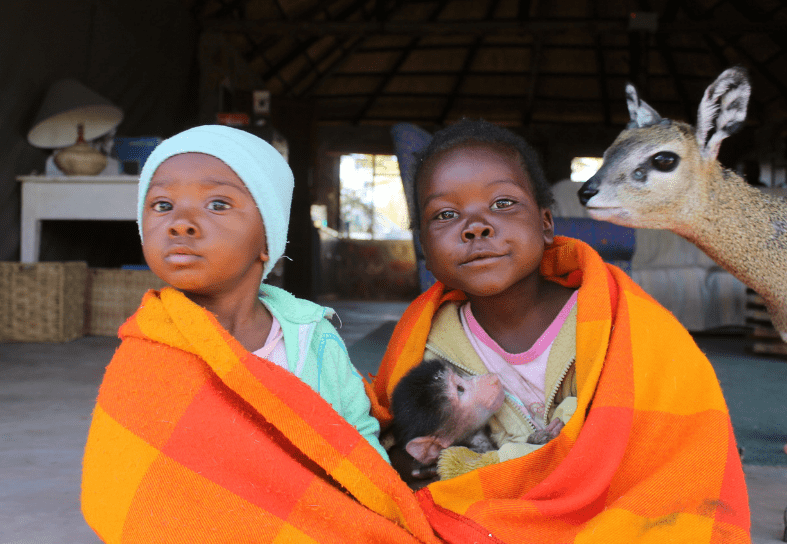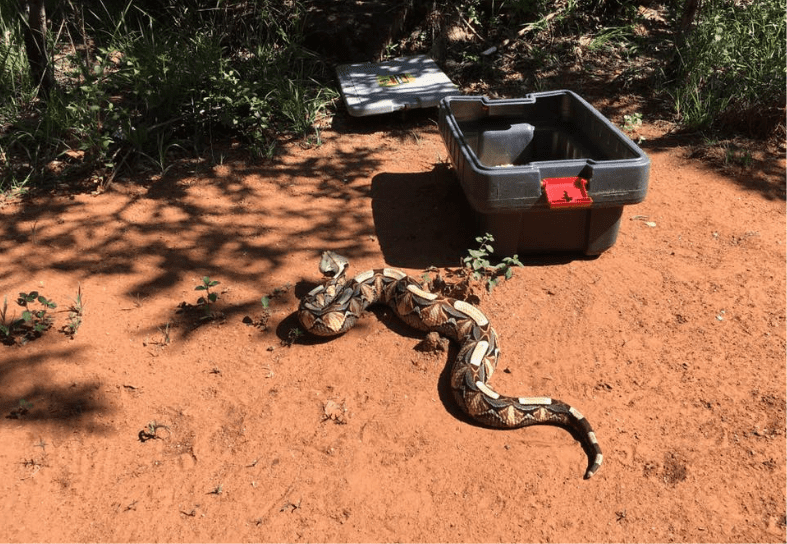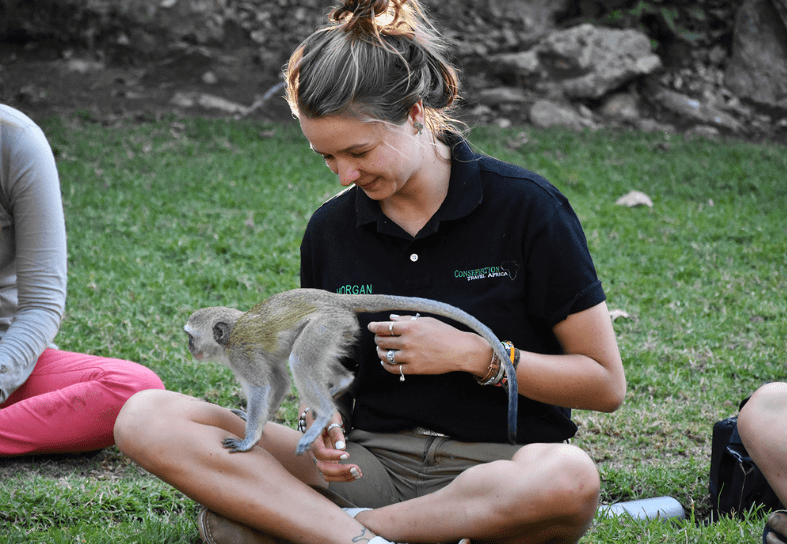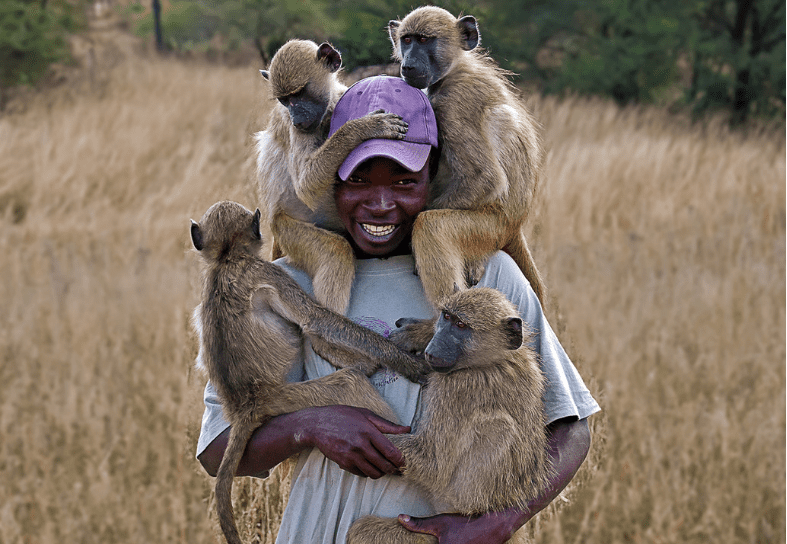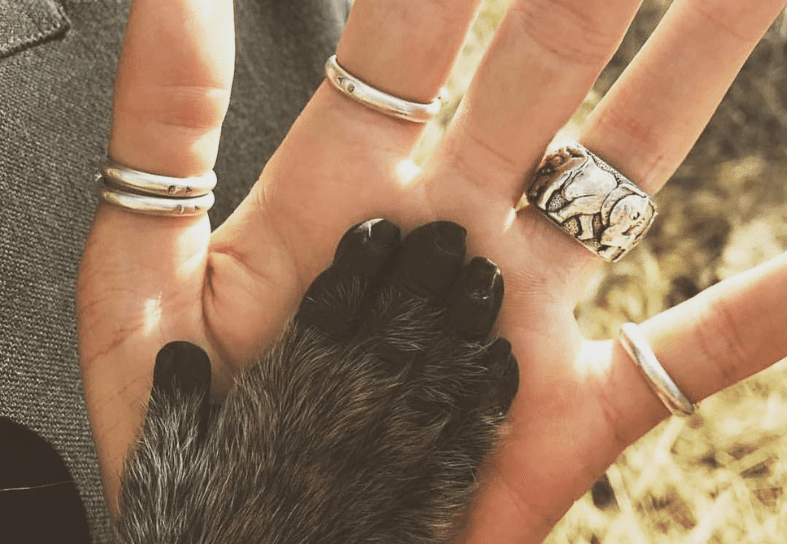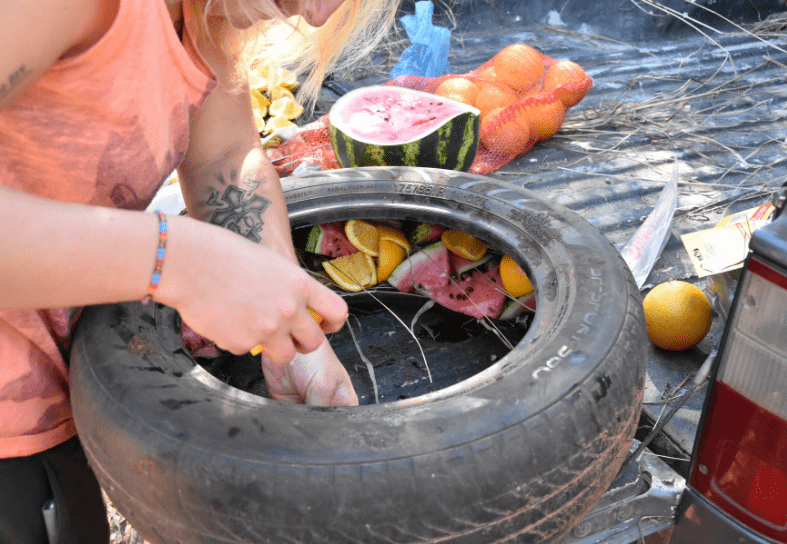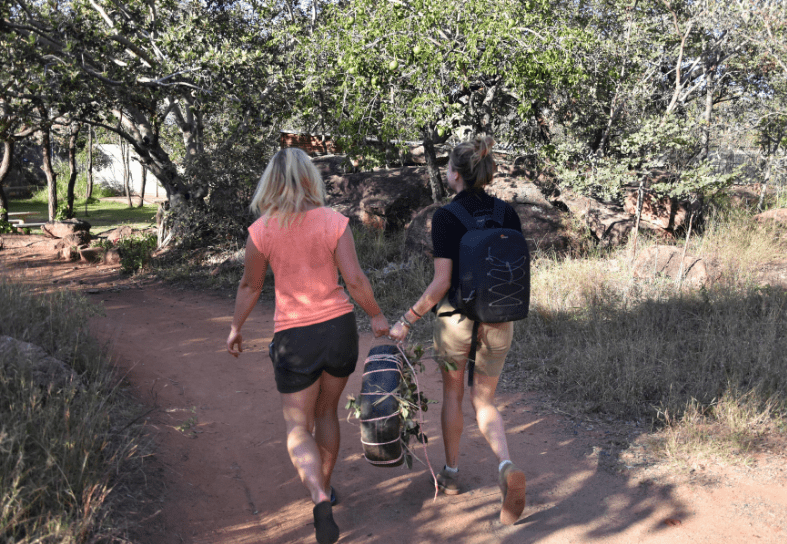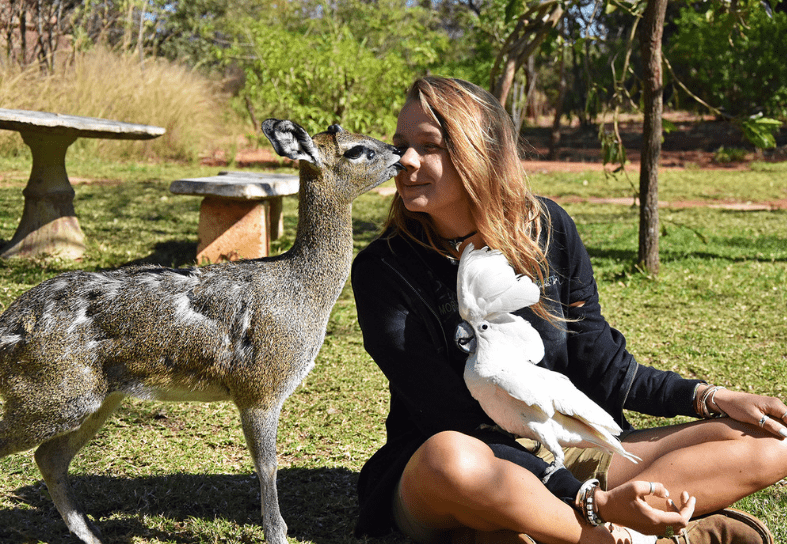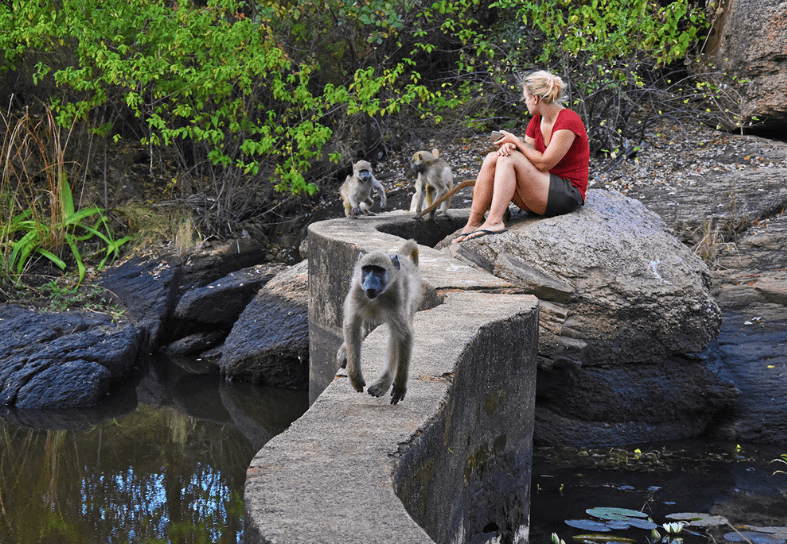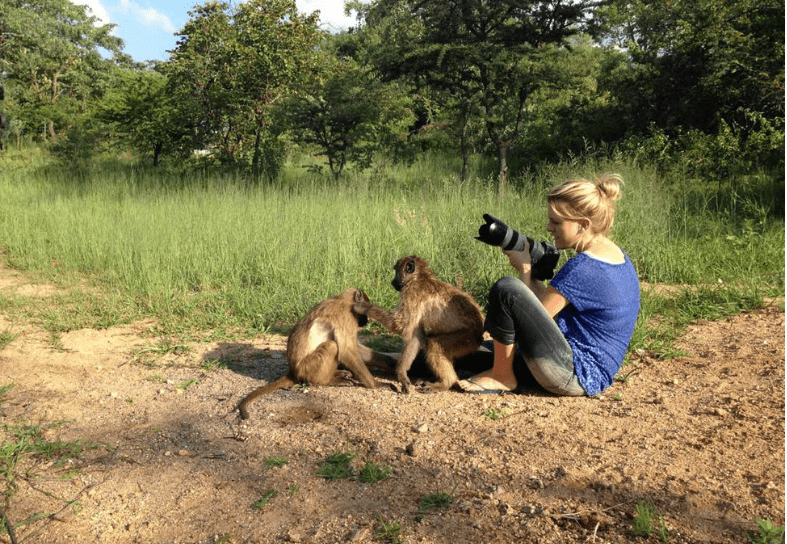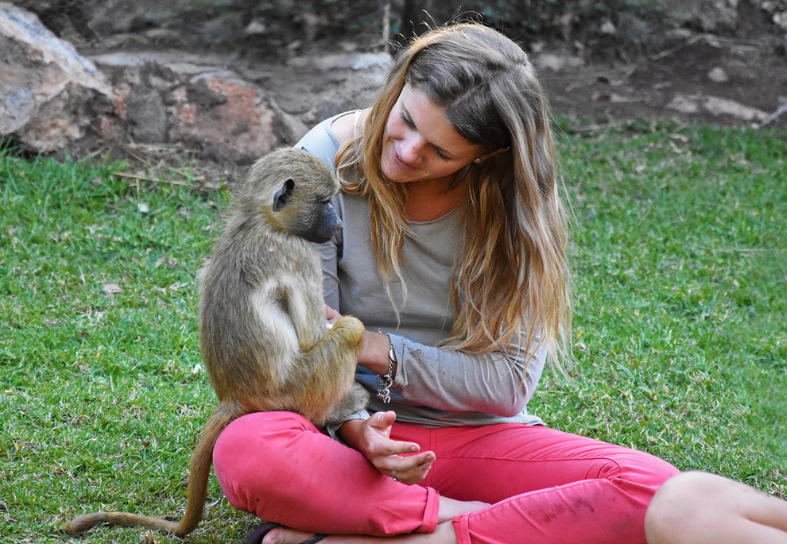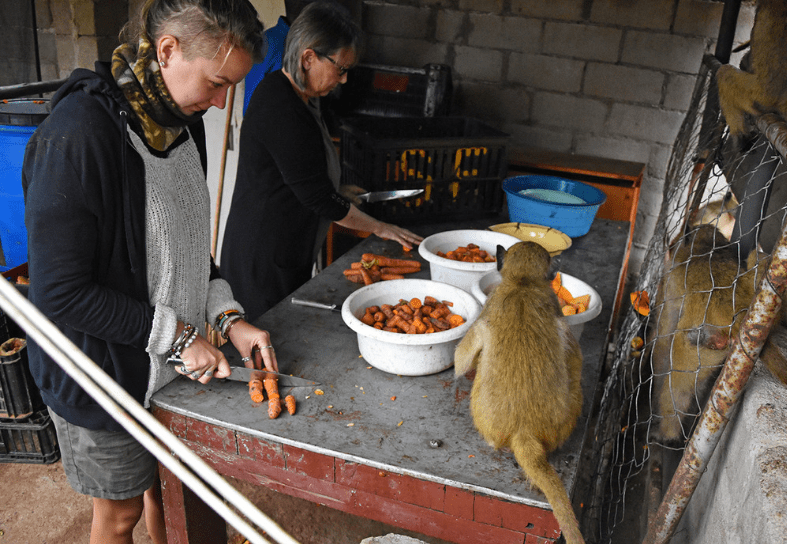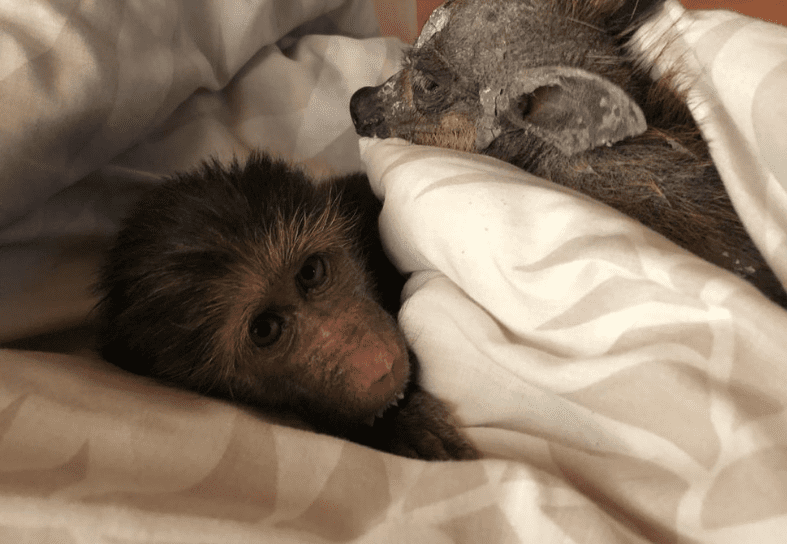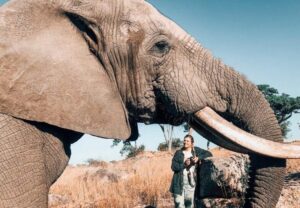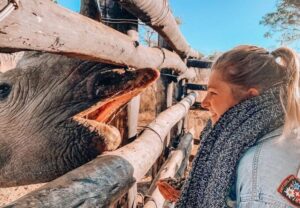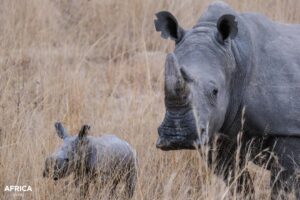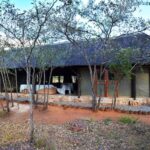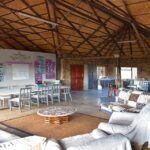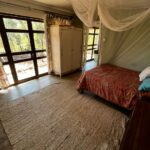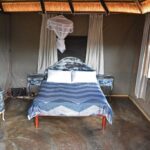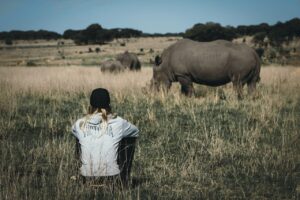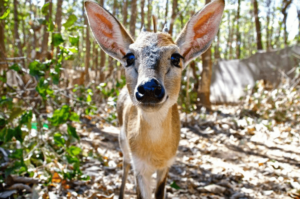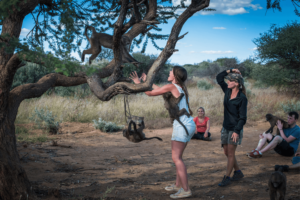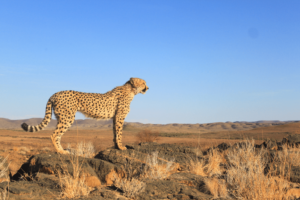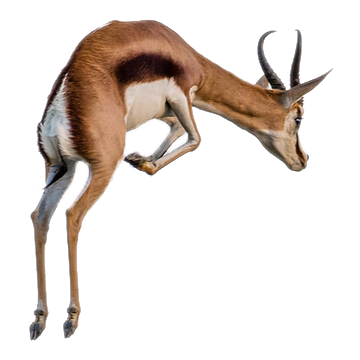Volunteer with Monkeys
PRIMATE CONSERVATION ZIMBABWE
Zimbabwe
1 - 12 weeks
Flexible
Up to 8 people
Age 16+
From $875
Zimbabwe
1 - 12 weeks
Flexible
Flexible
Up to 8 people
Max 8
Age 16+
From $875
What's the project about?
The chance to volunteer with monkeys is incredibly rewarding, giving you the opportunity to work with and aid in the release of local wildlife.
The project is Zimbabwe’s only dedicated primate conservation facility, and was purpose-built to support the ongoing care, rehabilitation and eventual release of monkeys and baboons. However, the facility has an open-door policy to all wildlife species in need of care and has taken in rare and critically endangered species such as pangolins and vultures, as well as zebras, bush babies and birds. The focus remains on the conservation and rehabilitation of various primate species, who are the often-forgotten victims of the human-wildlife conflict.
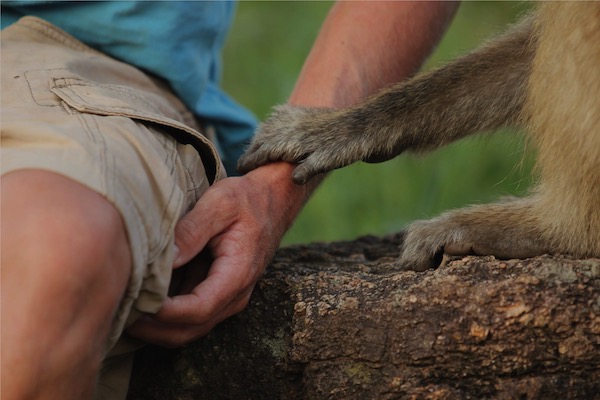
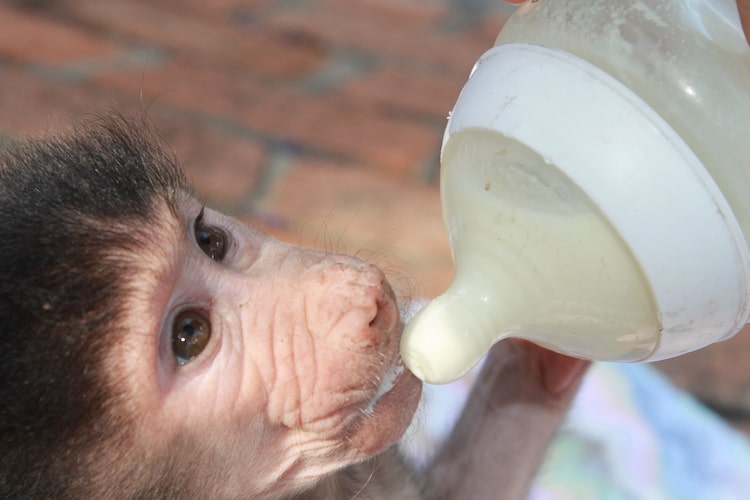
How will I be contributing when I volunteer with monkeys?
This small wildlife sanctuary relies on volunteers to support local staff in all aspects of animal care and monkey conservation. There is one goal in mind – the care and release of Zimbabwe’s vulnerable wildlife. Each primate conservation volunteer plays a vital role in the rehabilitation process whether by caring for orphaned monkeys, assisting with release preparation or working with animals that cannot be released. When you choose to volunteer with monkeys you will join the day-to-day work at Zimbabwe’s first primate sanctuary and work with a wide variety of animals in need.
What makes this project ethical?
The primate conservation project’s mission is for there to be no captive primates in Zimbabwe, and the focus of the monkey sanctuary is wildlife release and education. It has a successful and well-documented release programme and has relocated many captive baboons and monkeys into the wilderness of the Matopos National Park. Other smaller animals including pangolins, servals, zebra, ostrich, birds and bush babies have been released into partner release sites. Volunteer tourism plays a vital role in achieving the project’s goals of raising international awareness of their conservation efforts and contributing to a local solution to the human-wildlife conflict. When you choose Conservation Travel Africa to volunteer with monkeys, you’ll know that you’re working with a permitted monkey rescue center that prioritises rehabilitation and release.
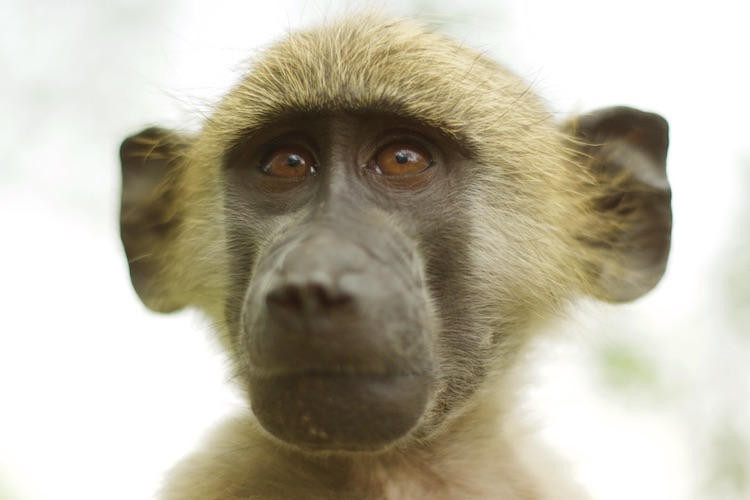
Project showreel
Project gallery
Project information
Activities
Rates & Dates
Accommodation
Project Goals
Background
FAQs
Activities
Primates in Africa often find themselves in conflict situations with farmers and landowners over crop damage. This conflict often results in numerous cases of orphaned primates, who if not rescued, spend their lives in small cages, in inadequate, miserable conditions.
Volunteering with monkeys is a unique opportunity to immerse yourself in the sanctuary family. Thereby contributing to an important nature conservation cause. The experience will be life-changing.
This project is ideal for self-motivated volunteers who are flexible with activities and timings. The work at the sanctuary will depend on what animals are resident and their particular needs. With rescues and new arrivals often happening at odd times of day, volunteers must be adaptable to often last-minute changes in itineraries. Your role at the sanctuary is extremely important and the more you put in, the more rewarding the experience will be.
Sanctuary volunteers are involved with a diverse variety of tasks which could include:
Primate conservation and small animal care:
- Work hands-on with wildlife orphans and vulnerable animals
- Raise baby and juvenile primates, from bottle feeding (often through the night), to bush walks, troop reintroduction and, where possible, eventual release
- Work with a range of non-primate species including zebra, ostrich, owls, raptors and bush babies, plus a range of domestic animals and birds
- Assist with food collection, prepare food and feeding, encompassing herbivores, carnivores and omnivores
Behaviour enrichment:
- Experience the joy of accompanying primates (and usually a few other special guests!) on bush walks. These walks stimulate animals to explore their natural habitat, forage, play in water, jump and interact as a group
- Build toys, platforms, playgrounds and other enrichment objects
- Become part of the troop as you engage and interact with young monkeys and baboons
- Work with animals who are not candidates for release due to mental or physical issues
Rehabilitation and release:
- Learn about the rehabilitation process and how it applies to a variety of small animals
- Play a part in individual animal release strategies
- Monitor released animals and the local primate population (on foot, by vehicle and on horseback)
- Join the veterinary team when rescue work is carried out (subject to location and conditions)
- Undertake snare sweeps and boundary patrols of the release sites
Rates & Dates
When can I volunteer?
Arrivals at the Primate Conservation Programme are flexible, although during busy periods we may ask you to try and join with other volunteers.
Project pricing:
1 week: $875
2 weeks: $1,750
3 weeks: $2,625
4 weeks: $3,360
Each additional week $850 up to a maximum 12-week stay.
Get in touch now to book your place!
If you wish to stay for longer than 3 months, please let us know.
All prices are in USD.
What’s included in the cost?
- Project contribution: this goes directly to our project partner, and provides funding to ensure the programme can continue to meet its goals.
- For this project the fee will cover things like staff costs, equipment purchases, maintenance of buildings, equipment and vehicles, veterinary fees, animal feed, fencing, funding for community projects etc
- Accommodation and three meals per day
- Laundry and housekeeping
- Comprehensive orientation and supervision
- Practical instruction by experienced staff members
- Equipment and materials required to do your work
What’s not included?
- Flights or travel to Bulawayo, Zimbabwe
- Airport transfers ($30 each way or $20 each way from Bulawayo town)
- Visa fees (variable depending on nationality)
- Travel insurance (compulsory
- Personal expenses such as curios, drinks from the bar, snacks, town trips
- Additional excursions
- Local SIM card and data/airtime bundles (optional)
- Administration fee ($40)
View our booking terms and conditions.
Zimbabwe volunteer packages
CONSERVANCY & REHABILITATION COMBO
We highly recommend combining volunteering with monkeys with a week or two (or longer!) at our very popular Rhino & Elephant Conservation Program. This program is a short 1-hour internal flight away. You will experience life in a 10,000 acre private conservancy, dedicated to the protection and breeding of the endangered black rhino. Click for more details of our Conservancy & Rehabilitation combination project.
Accommodation
Volunteers are accommodated in a large, homely volunteer house in the heart of the sanctuary. There are four bedrooms – two twin rooms and two dormitories (same sex sharing) and two bathrooms. All bedding and linen are provided. Each room has solar lights, storage and a lock-up trunk for valuables. There is only solar electricity at the project, so make sure to bring plenty of spare batteries for cameras and other electrical items, or solar chargers.
There is a laundry service available and a housekeeper who comes from Monday – Friday.
Three meals a day are provided and although there is a cook, volunteers are encouraged to assist and even take turns cooking meals from their own countries. There is a fully equipped kitchen to prepare and cook meals, including a gas fridge and freezer, a four-plate gas stove and small oven. A variety of meals are on the menu including pasta, rice, cereals, bread, jams and spreads, oats, meat and cheese, eggs and milk. Fresh fruit and vegetables and other fresh produce are bought every few days, and vegetarians and vegans can be catered for. Please let us know of any dietary requirements when making your booking.
Volunteers are encouraged to join the team socially for evening dinners, day trips and nights out. This is a chance to integrate with the local community and see the real Zimbabwe. Going to the vegetable markets with the team for food collection is always a great experience in seeing the day-to-day living of local Zimbabweans.
The sanctuary is set up to be a free-roaming wild environment, and there are animals that share every part of the sanctuary with you, including the volunteer house. The dogs who live at the sanctuary love people, company and attention. Marlin and Leni the parrots live at the volunteer house, wake up early and love to chat! They will roam around, visiting you in the lounge and kitchen areas.
There is no WiFi available at the sanctuary, however you can purchase a local SIM card and buy data bundles for Facebook, Instagram, WhatsApp and emails, to enable you to keep up to date with the outside world. Do bring games, books and other activities for the evenings.
“The volunteer accommodation is awesome, it’s relaxed, very open and there are plenty of places to sit back and appreciate your surrounds. I LOVE the house guests that pop in and out. It was nice to be able to cook for ourselves and the availability of food at the local shop was perfect – I’m vegetarian and didn’t struggle at all.”
Project Goals
The primary goal of the Primate Conservation Program is for there to be no captive primates kept in Zimbabwe. This includes primates kept as exotic pets, victims of the illegal wildlife trade or those affected by conflict situations.
Baboons and other old world monkeys are looked upon as pests who can be very destructive to farmers’ crops and are often poisoned or shot. This results in both horrendous injuries and numerous orphaned babies, who, if not rescued, often spend their inevitably short lives in small cages. However, the success of primate release in Southern Africa is an admirable 97%, and the sanctuary works hard to maintain this high standard.
The sanctuary has an open-door policy for all animals in need of care. The focus is also on eventual release, either back into wilderness areas, or into a release site within a local wildlife reserve. Releases of animals and birds by the project are well-documented and have a high success rate.
Alongside the project’s rehabilitation and release goals, they work hard to ensure the long-term protection of Zimbabwe’s wildlife by working together with local communities and other environmental stakeholders. The team work hard to demonstrate how small animals can successfully exist alongside local communities, and encourage people to report problem animals, rather than take their own action.
Background
The primate conservation sanctuary was founded in 2013 when an orphaned baby baboon was given to the owner to raise. The formation of the sanctuary was a long way off, but a promise was made to the baboon that one day she would be returned to the wild. It remains the only dedicated primate rehabilitation and release facility in Zimbabwe. Since 2014, when the sanctuary was purpose-built to house primates, the center has grown and now has an open-door policy to any animal in need of care.
The project’s mission is for there to be no primates in captivity in Zimbabwe. It has a very successful release record, relocated many once-captive baboons and monkeys back into the wilderness of the Matobo National Park. The park is one of Zimbabwe’s largest and most unspoilt areas. Other threatened species that face habitat loss, including pangolins, servals, owls and bush babies, have been successfully released into a Phase two release site in a local wildlife haven.
FAQs
Who should volunteer with our primate family?
This program is a wonderful experience for volunteers of all ages. It’s a place where you can experience Africa in a safe environment, work hard and really see the impact that your contribution is having. The small team also makes this a great, hands-on, personal experience. There is some walking involved over uneven terrain, so volunteers should be of reasonable mobility. You should be able to communicate reasonably well in spoken English.
This project is ideal for self-motivated volunteers who are willing and able to be flexible with activities and timings. The work at the sanctuary will depend largely on what animals are resident and their particular needs. With rescues often happening at odd times and animals arriving during the day, it is vital that volunteers are adaptable to often last-minute changes in itineraries. Be assured that your role at the sanctuary is extremely important and the more you put in, the more rewarding the experience will be.
How old do I need to be to volunteer with monkeys?
The minimum volunteering age for solo travellers is 16 years (under 18s are on request and places are not guaranteed). There is no upper age limit, subject to the general fitness requirements outlined above.
Can I volunteer with monkeys with my family?
Yes! The project is perfect for family volunteers with children of all ages. Please visit our Family Volunteering – Primate Conservation page for further details.
How many volunteers will there be?
There is a maximum of 8-9 volunteers at one time, plus staff and volunteer managers.
When can I join?
Volunteers should aim to arrive and depart on a Monday, although start dates can be flexible.
When is the best time to volunteer with monkeys?
November to February is known as ‘orphan season’ when most baby animals, particularly primates, are born. Some of these animals become orphaned, either because their parents are killed in accidents, or because of the illegal bushmeat and exotic pet trade. Many of them are brought to the sanctuary for rehabilitation and care before their eventual release.
From a weather perspective; April – October is the dry season, with the rains usually coming again in mid to late November. June – September is winter, characterised by warm, sunny days, clear blue skies and cool evenings and nights. October is the hottest month, with daily temperatures in the area reaching 30-32 degrees. November – March is summer, where rain showers are intermingled with hot, sunny days and temperatures of over 30 degrees.
Do I get some time off?
Volunteers work from Monday to Saturday lunchtime. Saturday afternoon and Sunday are leisure time, where you can explore Bulawayo and the surrounding areas. We highly recommend a weekend excursion to Victoria Falls (a one-hour flight), which can easily be organised when you are at the program.
How long can I volunteer in Zimbabwe for?
The minimum project length is one week, and the maximum stay is twelve weeks. We recommend a minimum 2-week stay if possible!
How much spending money should I bring?
We recommend bringing around $100 per week in USD cash to cover personal expenses such as transfers, visa fees, drinks, souvenirs, t-shirt, snacks, tips and internet usage.
Do I need a visa to volunteer in Zimbabwe?
Most nationalities, including British, American, Canadian, Australian and most EU citizens, should get a 30-day BUSINESS visa upon arrival in Bulawayo. Fees are dependent on nationality and range from $30 – $75 (paid in USD cash). Extensions are available from the Department of Immigration in Bulawayo, up to a maximum stay of 6 months. It is your responsibility to check your visa eligibility before arrival. Visit this website to check your eligibility. If you do need a visa before arrival, please let us know and we will advise.
What animals will I encounter?
The primates that you will encounter at our sanctuary are old world monkeys – rather than the new world monkeys of South and Central America. The sanctuary also opens their doors to other wild animals in need of care.
The sanctuary is currently home to nine baboons, 14 vervet monkeys, a three-legged zebra, antelope, bush pigs and warthog, an ostrich, various birds and raptors, mongoose, bush babies and four deaf Dalmatians.
What vaccinations do I need?
Please consult your GP or travel clinic for detailed medical advice. All volunteers should make sure their tetanus vaccination is up to date. A rabies vaccination is recommended but not compulsory.
Malaria – the project is regarded as a low-risk malaria area, but please consult your GP for guidance.
Please visit this UK government website for more details.
Volunteer reviews
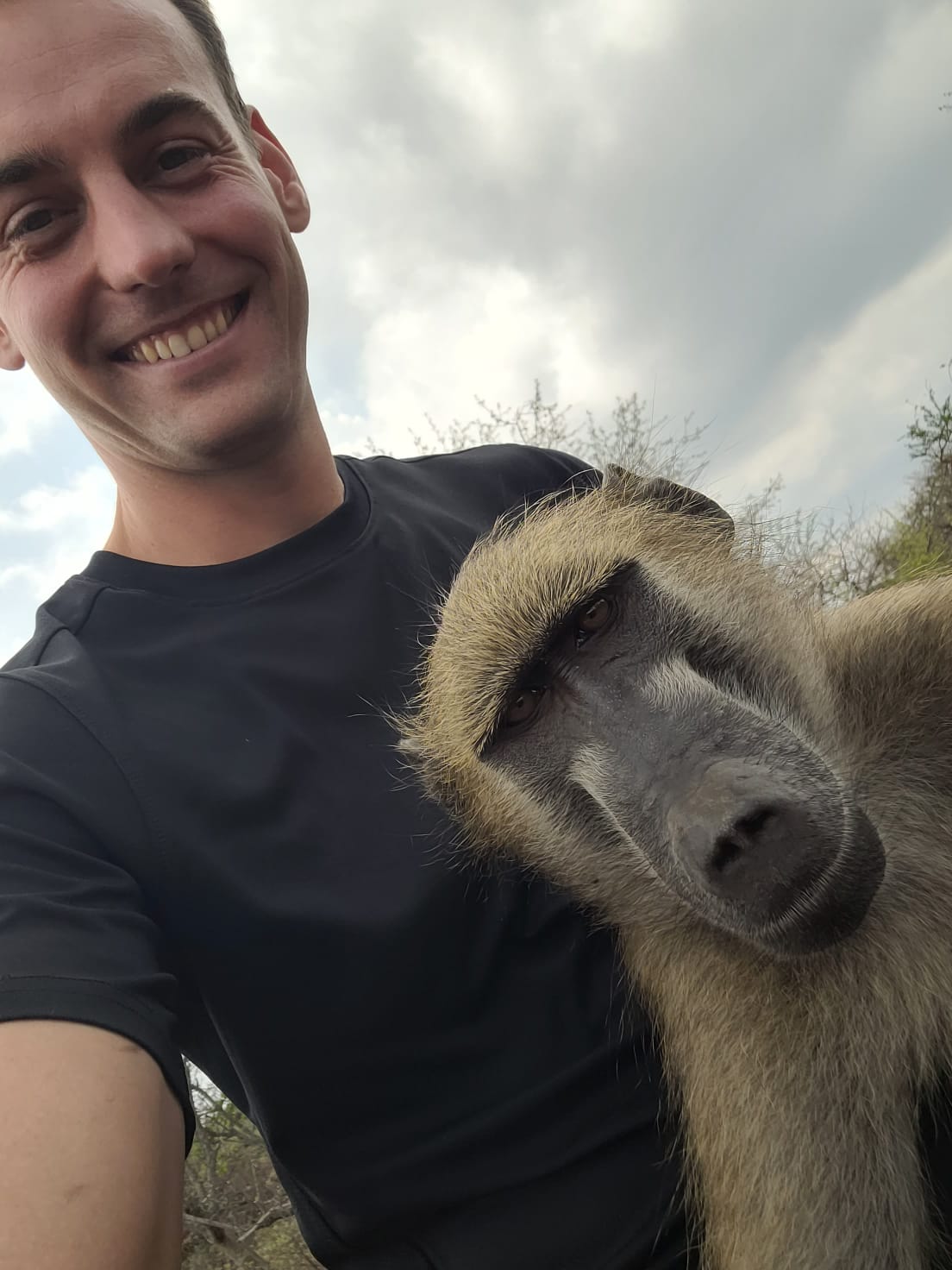
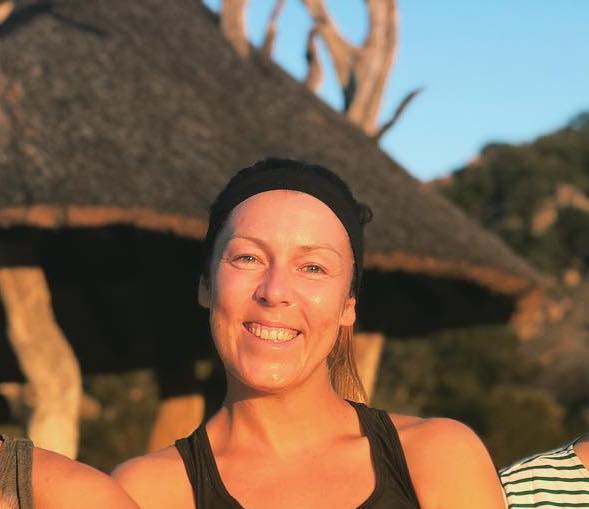
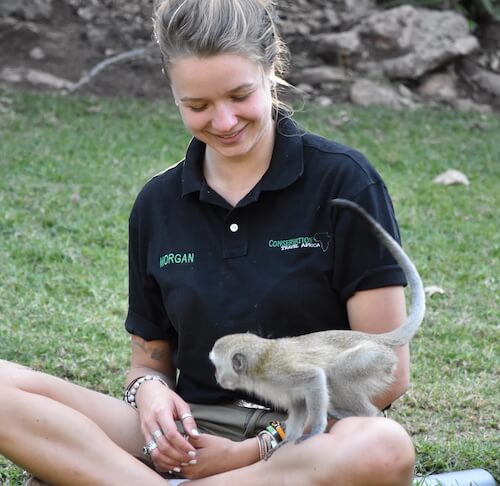
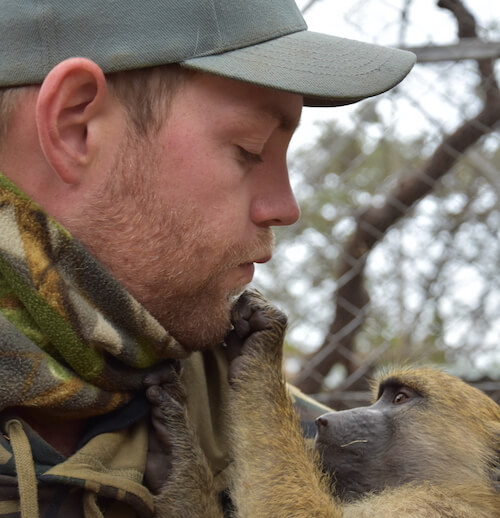
Other projects you might be interested in
Not sure if you want to volunteer with monkeys? We also offer a wide selection of other chances to volunteer abroad.
Rhino & Elephant Conservation
Join a unique conservation programme, dedicated to the protection of the black rhino. Play a vital role in securing the future of these iconic animals.
From $950
1 - 12 weeks
Rescued Animal Conservation
Get involved with orphan care, wildlife rehabilitation, habitat enrichment and veterinary health checks, at our small sanctuary project in Malawi.
From £1,500
2 - 12 weeks
Namibia Wildlife
Sanctuary
Support staff with all aspects of daily animal care at a busy sanctuary. Work with large and small carnivores, primates, and a variety of other animals.
Large Carnivore Conservation, Namibia
Support the conservation of big cats in a responsible way and help mitigate the human-wildlife conflict. Track wild carnivores in a spectacular setting.
From $1,630

